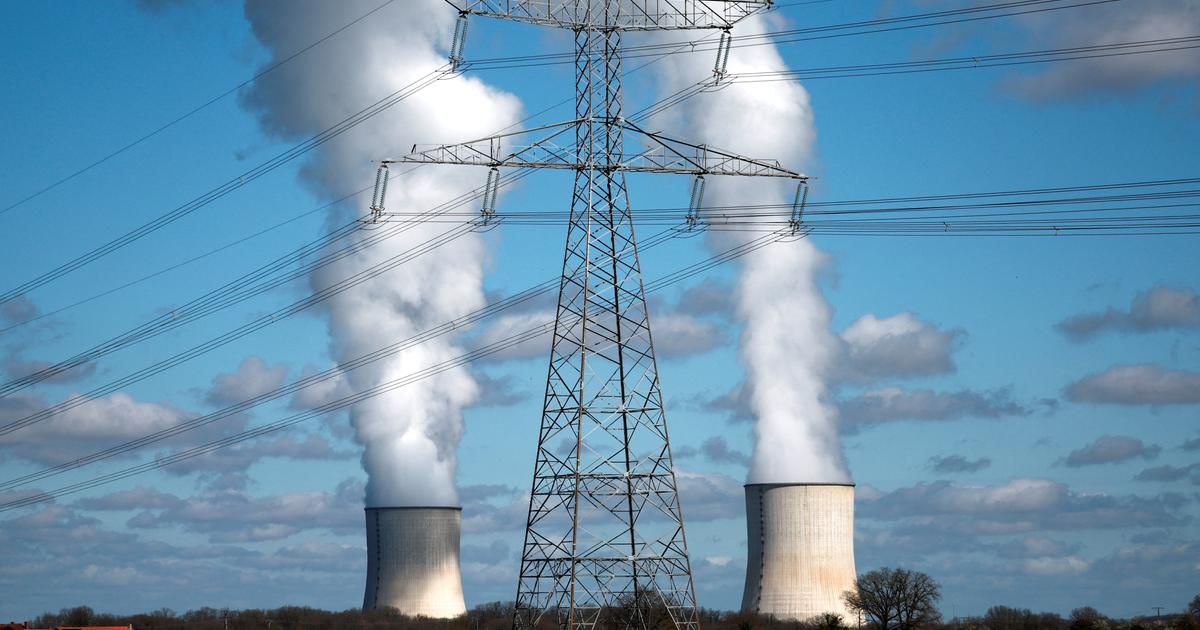Gas crisis: Kretschmann presents savings plan - air conditioning, hot water, elevators and "energy savings book"
Created: 2022-07-27 05:43
By: Patricia Huber
While Putin is turning the gas tap, the EU is working on the emergency plan.
The concern about a complete gas stop remains.
The latest information on the gas crisis in the news ticker.
Kretschmann
presents an
energy
saving plan: With an "energy saving booklet" and many other measures, the Prime Minister wants to motivate citizens to save.
After
throttling
,
Kretschmann is less optimistic
: Baden-Württemberg's prime minister was positive about the savings targets.
But now he is again talking about a “precarious” situation.
Only
Hungary
votes
against the EU emergency plan
: Luxembourg's Energy Minister Claude Turmes said on Twitter that the country around Prime Minister Orban was the only one to vote against it
This news ticker on the gas crisis is constantly updated.
Update from July 26, 5:03 p.m .:
Hungary was the only country to vote against the EU’s gas emergency plan.
According to a government spokesman, Hungarian Foreign Minister Peter Szijjarto said of the austerity plans: "This decision is completely unacceptable for Hungary and its implementation is out of the question." Hungarian interests are being ignored.
However, the gas emergency plan has not yet been formally decided after the meeting of the energy ministers.
A written procedure is still required for this, which, according to the Czech EU Council Presidency, should be completed within the next few days.
Contrary to what was envisaged by the EU Commission, the plan should not be valid for two years, but initially only for one year.
Update from July 26, 3:05 p.m .:
According to Robert Habeck, Germany should exceed the EU-wide gas savings target of 15 percent by the end of March.
"Indeed, for some countries and I would also say for Germany, we should try to get better," Habeck said on Tuesday after the agreement on an EU emergency plan to save gas.
However, a lot depends on the cold of winter and the individual consumption of the citizens.
A lot has already been done in the past few weeks and months.
In addition, the Economics Minister described the emergency plan as a "strong signal against all scoffers and against all despisers" of the EU.
Before the agreement, the reports said that Europe was divided, that it would not succeed and nobody wanted to save gas, said Habeck.
But this was shot in just five days.
Many are willing to go half a step more than is actually necessary for purely national interests.
Habeck described the cut in gas supplies announced by the Russian gas company Gazprom as a clear strategy from the Kremlin.
“I believe that Gazprom itself, i.e. the group, is no longer the master of its own decisions.
The farce surrounding this Canadian turbine speaks for itself,” he said.
"Everything is politicized and agreements are no longer kept."
Kretschmann presents an energy saving plan: air conditioning, hot water, elevators and an "energy savings book"
Update from July 26, 2:02 p.m .:
Due to the precarious gas situation, Prime Minister Winfried Kretschmann has now made a clear announcement to the citizens of Baden-Württemberg.
"Saving energy is now the first civic duty," he said, according to the
Bild
report.
Therefore, a plan to save 20 percent of energy should help.
He passed this at the gas crisis summit on Monday (July 25) with representatives of the state government, municipalities, employers, trade unions, trade, energy suppliers and consumer protection groups.
The most important steps from Kretschmann's savings plan:
also read
Energy price flat rate: Who actually gets the 300 euros and when will the money come?
Eaten Habeck rages on TV about Gazprom's Nord Stream plan - "economic warfare"
The temperature in state administration offices will be reduced to the legal minimum, i.e. 18 degrees.
Private companies should also join in on a case-by-case basis.
Air conditioning systems are always turned off, except on extremely hot days.
Wherever possible, elevators, fan heaters and fans are not used.
Water-saving shower heads are used for showers in service buildings.
Hot water should only be available where it is necessary.
In sanitary areas, the hot water should be turned off completely.
Heating is continuous and relies on smart heating control.
It relies on LED lights instead of regular light bulbs.
In addition, lighting that can be switched off automatically should help to save energy.
Home office, desk sharing and carpooling should also help to save energy.
An "energy saving booklet" is to be provided and distributed by chimney sweeps, plumbing, heating and air conditioning companies.
After the throttling, Kretschmann is less optimistic: "The situation is more precarious again"
Update from July 26, 1:17 p.m .:
Due to the throttling of the gas flow through the Nord Stream 1 pipeline, Prime Minister Winfried Kretschmann believes that the situation for Baden-Württemberg has become significantly more difficult again.
The "shot of confidence" that was broadcast at the gas summit on Monday was premature.
"Putin let us down a piece of the rope," admitted the Green politician on Tuesday in Stuttgart.
“The situation is now more precarious.
Saving is all the more necessary.” In any case, this mitigates the crisis in autumn and winter a bit.
After the summit with business, municipalities and suppliers, Kretschmann was still optimistic that with savings efforts, the gas storage capacity would be sufficient to survive the winter.
However, a prerequisite for this positive scenario was that 40 percent of the delivery capacity continued to flow through Nord Stream 1.
But a few hours after the crisis meeting in Stuttgart, the Russian company Gazprom announced that from Wednesday onwards only 20 percent of gas would flow through the most important supply line to Germany every day.
Only Hungary votes against EU emergency plan
Update from July 26, 12:52 p.m .:
The EU countries have agreed on a gas emergency plan for this winter.
The EU energy ministers meeting in Brussels had "reached a political agreement to reduce gas demand," the Czech EU Council Presidency announced on Twitter on Tuesday.
According to Luxembourg Energy Minister Claude Turmes, Hungary was the only member country to vote against the compromise.
EU countries agree on emergency plan: "Strong, unified signal"
Update from July 26, 12:04 p.m .:
The EU states have initiated the decision-making process for an emergency plan to reduce gas consumption.
At a special meeting of the ministers responsible for energy on Tuesday in Brussels, the necessary majority for the step came together, as confirmed by the Czech EU Council Presidency.
The plan is primarily intended to reduce the risks that could arise from a complete disruption of Russian gas supplies.
Robert Habeck said at the meeting he was expecting a "strong, unified signal."
He emphasized: "We will urgently need this spirit, this unity and this determination in the coming months."
According to the text of the ordinance, which is available to the
German Press Agency
, the plan, as proposed by the EU Commission, provides for a voluntary reduction in national consumption by 15 percent between August 1, 2022 and March 31, 2023.
In addition, the possibility should be created to trigger a Union alarm in the event of far-reaching supply bottlenecks and to set binding savings targets.
Gas prices have risen significantly: as high as not since the beginning of the war
Update from July 26, 11:47 a.m .:
After the announcement by the Russian gas giant Gazprom that it would further reduce deliveries to Europe through the Nord Stream 1 pipeline from Wednesday, the price of gas in European trading rose significantly.
On Tuesday morning, the TTF futures contract used as a reference on the energy exchange in the Netherlands briefly jumped over EUR 190 per megawatt hour.
It last reached this level in March, shortly after the beginning of the Russian war of aggression against Ukraine.
Robert Habeck sees initial success in saving gas
First report from July 26, 2022:
Brussels – Federal Minister of Economics Robert Habeck (Greens) sees Germany on the right track to achieving the EU-wide target of 15 percent in gas savings.
"Enormous efforts and enormous successes have already been achieved" and will be able to achieve more, said the Green politician on Tuesday at a special meeting of EU energy ministers in Brussels.
"And if Germany makes more than 15 percent, then there's no shame."
According to Habeck, Germany is already at 14 or 15 percent - but compared to the previous year and not temperature-adjusted.
The EU target is to take the average value of consumption in the period from August to the end of March over the past five years as a reference.
However, it should be possible to reduce the volume of savings, for example by deducting the gas consumption in food production.
(dpa)











/cloudfront-eu-central-1.images.arcpublishing.com/prisa/KMEYMJKESBAZBE4MRBAM4TGHIQ.jpg)



